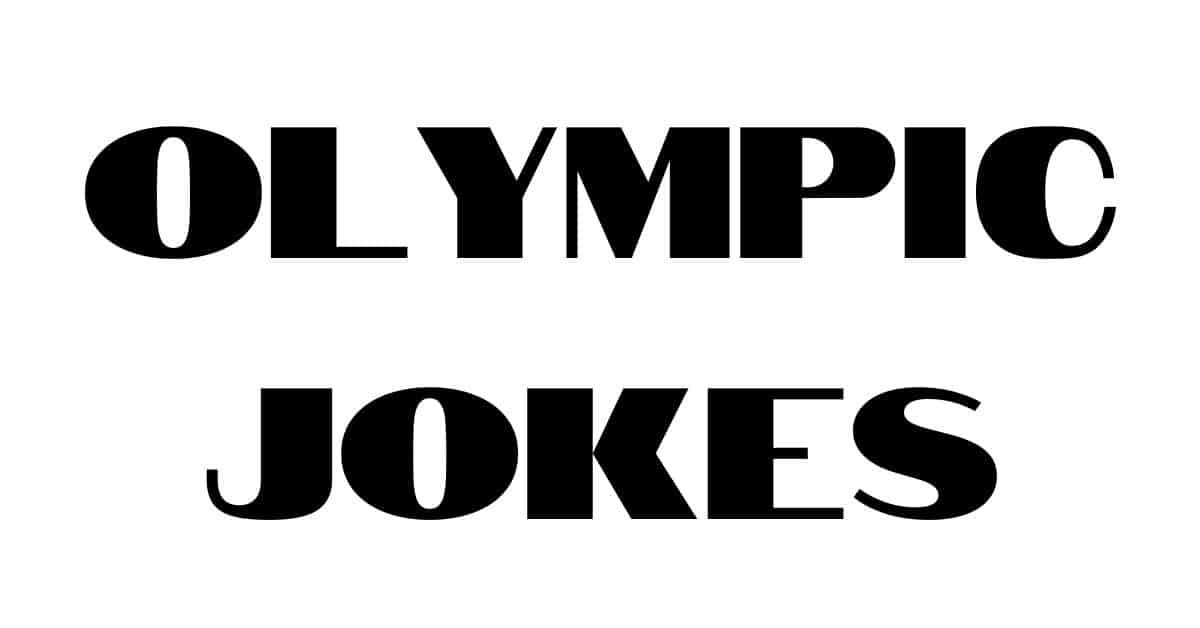
Funny Olympics Cartoons
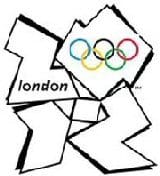
Will and Guy present a collection of funny Olympic cartoons for London 2012.
Four Cartoons to Sum up Public Opinion
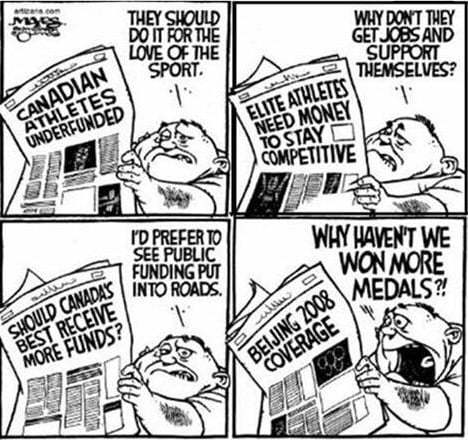
English Dreams of a Medal at the 2012 Olympics
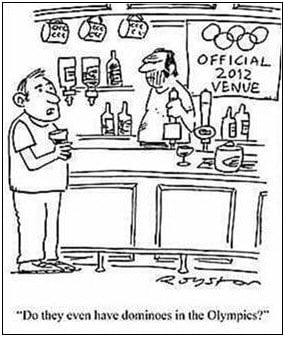
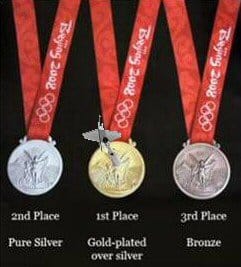
London’s Special Award
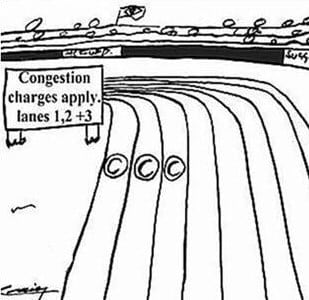
London Olympic 2012 Funny Pictures and Cartoons
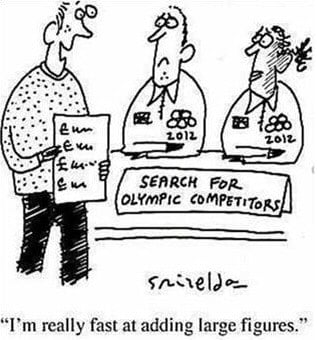
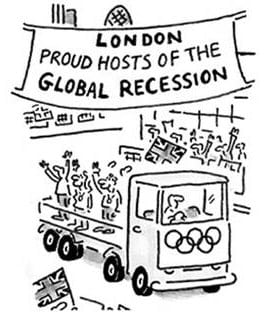
- Paul Hamm, Gymnast: I owe a lot to my parents, especially my mother and father.
Stamps for the London 2012 Olympics
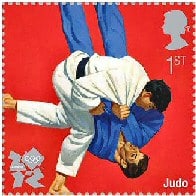
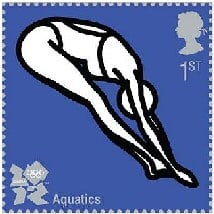
Everyone is Trying for the English Olympic Team
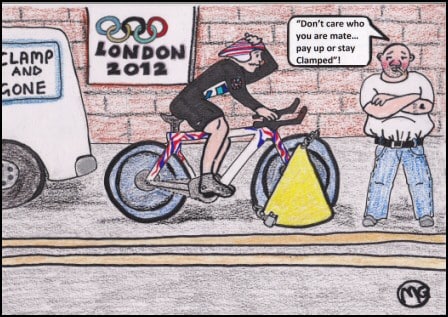

Michael Phelps
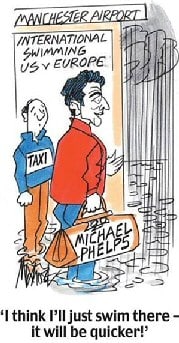
On The Other Hand… Olympic Excitement?
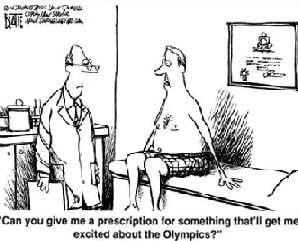
Funny Olympics Flames and Rings
Will and Guy present a collection of funny Olympic flames.
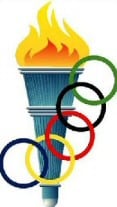
Olympic Flame Cartoon
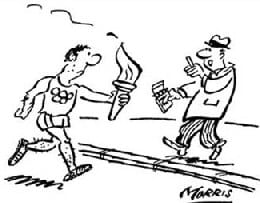
More Serious Olympic Flames
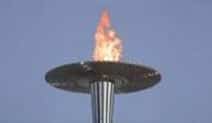
Olympic Flame
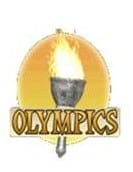
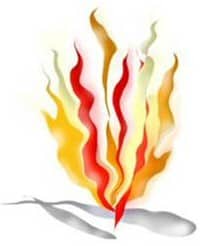
The Olympic Torch
The Olympic torch passes through all 5 continents on its 79-day journey.
Trivial Question: when was this practice of relaying the torch first started?
- 1896 – First Olympics of the Modern Era.
- 1936 – Berlin – Hitler Olympics.
- 1984 – Los Angeles – Commercialization takes off.
Funny Olympic Rings
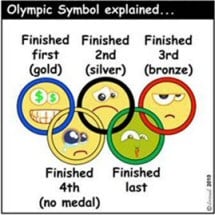
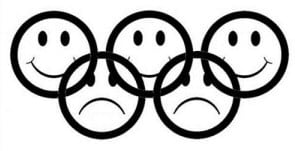
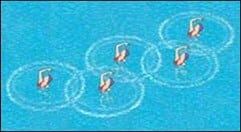
WWE Wrestling Bout?
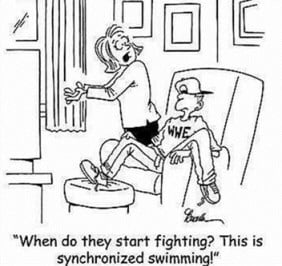
Olympic Secret!
Lord Coe is upset because somebody leaked a video of the rehearsal for the London Olympics Opening Ceremony on the Internet.
I don’t want to give away too much, but it ends with the lighting of a large flame.
Britain’s Eccentric Welcome To the Olympic Torch
Will and Guy have established that communities across Britain are planning a series of eccentric spectacles: from shin-kicking to wool sack racing, as part of the Olympic torch relay this summer in 2012.
Two men in the annual shin-kicking contest, in Gloucestershire, England.
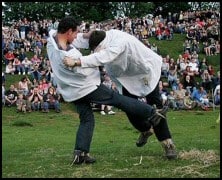
In the run-up to London 2012, the eyes of the world will be on the Olympic flame as it tours Britain in an 8,000-mile relay; as the torch arrives in towns and villages across the country, locals will seize the opportunity to show off the British talent for traditional and eccentric pastimes, from cheese-rolling to Morris dancing.
Brass bands, choirs, and amateur dramatics troupes are also being recruited to perform, as local authorities take responsibility for organizing festivities at each location along the route.
- In Cheltenham, Gloucestershire, the council is planning a cheese-rolling competition, in which contestants chase a cheese down a slope.
- The same event will feature a shin-kicking contest, in which competitors try to knock over their opponent by kicking their legs
- Also, there will be woolsack races, in which runners complete a course while laden with a sack full of wool.
- In Brighton, residents are being encouraged to take up “guerrilla gardening” by making “seed bombs”, or collections of wildflower seeds, to scatter along a guided walk as the torch goes past.
- There are plans for Morris dancers to perform in Hastings, East Sussex, and Borough Green, Kent.
Elsewhere, the torch relay is being used as an excuse for that other great British tradition: fancy dress.
In Higham, Kent, locals will wear costumes inspired by Charles Dickens, a former resident, while in nearby Gravesend, women will dress up as Pocahontas, the daughter of an American Indian chief who came to live in the town.
In Ludlow, Shropshire, togas will be worn, while an Edwardian-themed Olympics is being planned in Durham. Other areas are using the relay as a chance to highlight local crafts and delicacies.
Paralympic Jokes
Blind Crossing
Algie is showing two young American girls around Soho in London and they stop at a Pelican crossing. Algie presses the button and 10 seconds later the pedestrian signal goes ‘bleep-bleep-bleep-bleep….’
‘What’s that for?’ asked one of the girls. ‘Oh that’s just to let the blind know that the lights have changed’ said the bloke. ‘My Gaad’ she said, really shocked, ‘in the States, we don’t even let them drive…’
Paralympians Disqualified
5 wheelchair athletes have been banned from the Paralympic games after they tested positive for WD40.
Olympic Games Myths
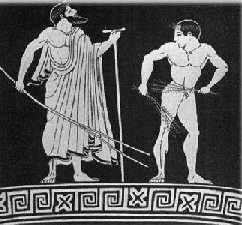
Pelops, a prince from Lydia sought the hand of the daughter of King Oinomaos of Pisa, namely Hippodamia. Oinomaos had declared that his daughter’s suitors should compete with him in a chariot race; winning it he gets Hippodamia as his wife; but on losing it, he would be beheaded.
Pelops with his charioteer Myrtilos secretly replaced the bronze linchpins of the King’s chariot with wax linchpins. During the race, the wax melted and Oinomaos was thrown from his chariot and died. Pelops and Hippodamia got married and Pelops celebrated his victory with the Olympic Games.
According to another myth, poet Pindar, in his Olympian Ode, tells the tale of how King Augeas of Elis reneged on his promise to reward Herakles for cleaning his stables. Herakles attacked and sacked Elis and started the Olympic Games in honor of his father Zeus.
Humorous and Funny Tales from Olympics Past and Present
- At the 1936 Olympics in Berlin, Germany, Dora Ratjen competed in the women’s high jump. In 1957 Ratjen came forward with an incredible account: he was a man [named Hermann] who had been forced by the Nazi Youth Movement to masquerade as a woman in an attempt to steal a medal in the games Alas, the ploy failed – when Ratjen was placed fourth.
- During the 1984 Los Angeles Olympic Games, although China fielded a magnificent team of gymnasts, one of their greatest hopes, Yun Leu, scored a low 9.20 on the pommel horse exercise. ‘Suit too big,’ Yun later explained. ‘Grabbed pants instead of pommel.’
- At the 1976 Olympics in Montreal, Olmeus Charles from Haiti was last by the largest margin ever recorded. He set a record for the 10,000-meter race. Giving the crowd tremendous value for money, he completed the course in 42 minutes 00.11 seconds. Everyone lapped him at least three times and the winner finished so far ahead he would have had time to complete another 5,000 meters. An argument broke out among the track officials as to whether he should be allowed to finish the course. Happily, the crowd was not denied this fine sight, and the entire Olympic timetable was held up by fourteen minutes. What Olympian spirit we say!
- David Cameron is scheduled to speak at the opening ceremony of the London Olympics. Nervous, he asks for a teleprompter. On the day of the speech, he takes to the podium and starts, ‘Oh, Oh, Oh, Oh, Oh.’
An aide quickly rushes to his side and whispers, ‘Prime Minister, those are the Olympic rings. Your speech is below that.’
- In 1928 Australian rower, Henry Pearce, stopped halfway through his quarter-final race to let a family of ducks pass in front of his boat. The French competition overtook him, but Pearce managed to get back in front and win the gold.
London Olympic Lego

A man has spent 300 painstaking hours building a replica of the London 2012 Olympic Park out of Lego. Warren Elsmore used about 250,000 bricks to create the venues and structures including Anish Kapoor’s Orbit, the Aquatics Centre, and the Olympic Stadium.
The model can be viewed at the Danish Village in St Katherine Docks until 12th August.
London 2012 Olympic 50p Coins
The 29 designs show Olympic and Paralympic sports
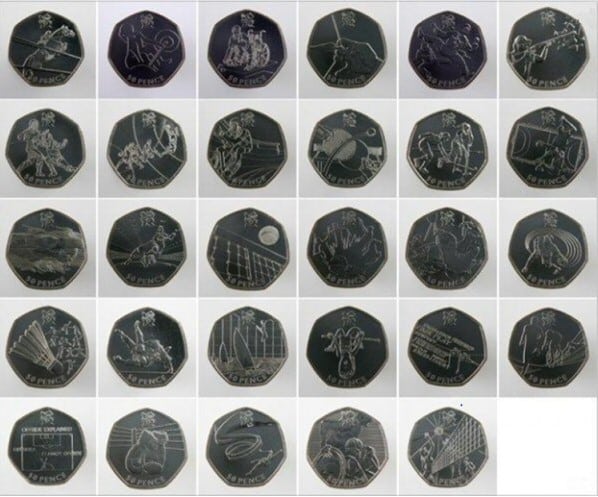
New 50 pence coins commemorating the London 2012 Olympic and Paralympic Games have been launched. The coins each feature one of 29 sports on the reverse and have been designed by people from England and Wales.
The designers range from a Manchester policeman and a delivery driver from Reading to a bank clerk from Preston and a Bristol schoolgirl. They share the honor of seeing their designs come into circulation and also knowing that, like every UK coin in general use, it has been approved by the Queen and the Treasury.
The 50 pence pieces feature well-known sports such as sailing, swimming, and basketball, but also lesser-known disciplines including handball and the Paralympic sport boccia.

